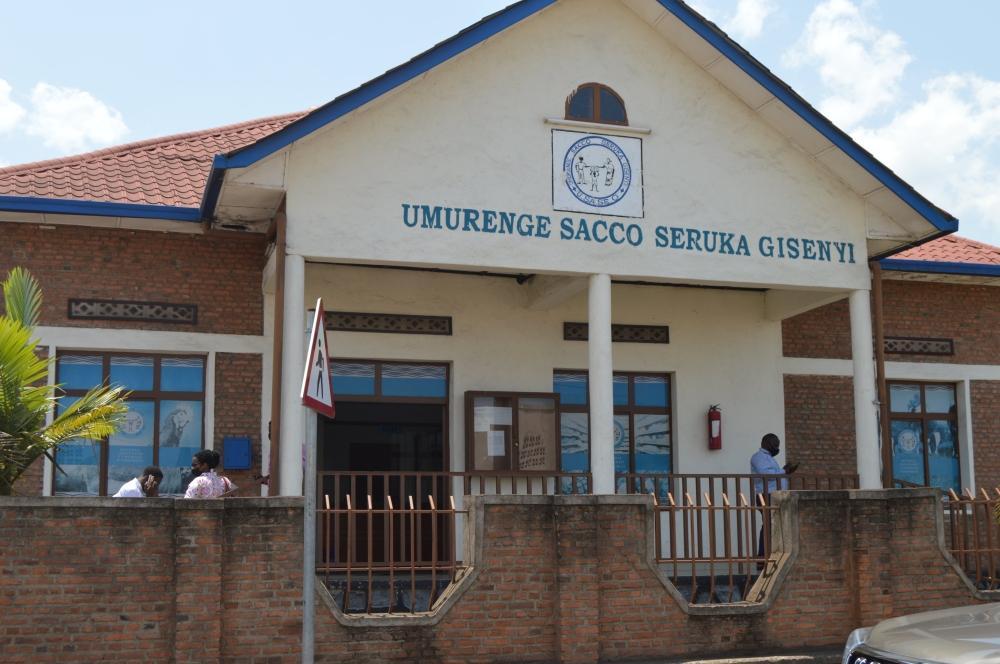Africa-Press – Rwanda. All 416 Umurenge SACCOs are set to be merged into district-level financial cooperatives, with the establishment of a national Cooperative Bank expected to be completed by the end of the 2025/2026 fiscal year.
Addressing the Chamber of Deputies on July 8, the Minister of Finance and Economic Planning, Yusuf Murangwa, stated that the consolidation of SACCOs and the establishment of the Cooperative Bank are progressing and are expected to be finalized by June 2026.
“So far, consolidation has been piloted in seven districts, namely Kicukiro, Gasabo, Nyarugenge, Gicumbi, Rubavu, Rwamagana, and Nyamagabe, leaving 23 districts to go,” Murangwa noted. He explained that this initiative aims to modernize SACCO operations, simplify service delivery, and establish a more inclusive cooperative banking model.
Launched in 2009 following resolutions from the 2008 National Dialogue, the Umurenge SACCO programme was introduced to combat financial exclusion by creating at least one SACCO in every administrative sector across Rwanda.
To address persistent inefficiencies such as manual processes, limited service offerings, and poor digital infrastructure, the government adopted a three-phase approach: automation, consolidation into District SACCOs (D-SACCOs), and eventually the creation of a Cooperative Bank.
The first phase, automation, was completed in June 2024, successfully digitizing all 416 U-SACCOs.
Murangwa said the next phase focuses on integrating SACCOs into Rwanda’s broader digital financial ecosystem.
As part of this effort, SACCOs like Ijabo in Kicukiro and Isoko in Gasabo are piloting mobile banking services in partnership with MTN Rwanda, allowing members to transact and access loans through their phones. Integration with the Rwanda Integrated Payments Processing System (RIPPS) which includes the Automated Transfer System (ATS) and Central Securities Depository (CSD) is underway.
“Once this system is fully operational, SACCO members will be able to conduct transactions nationwide. It will also reduce systemic risks in the financial sector,” Murangwa said.
Further, an electronic data warehouse managed by the National Bank of Rwanda (BNR) will be introduced to improve regulatory oversight and enable real-time financial reporting from SACCOs.
“As D-SACCOs consolidate, they will gain direct access to RIPPS, improving reporting accuracy and streamlining BNR supervision,” he added.
To ensure a smooth transition, capacity-building efforts have been considered. So far, 227 SACCO staff have been trained on new digital systems, and 789 participants have undergone consolidation-specific training.
Despite this progress, lawmakers expressed concern about potential problems. MP Aline Ingabire questioned whether consolidation might limit grassroots access to financial services.
“Will sector-level branches still exist after consolidation?” she asked.
Murangwa assured lawmakers that services would remain near to citizens.
“SACCO branches will continue to operate at sector level, and guidelines will ensure that most decisions are made locally,” he said.
Deputy Speaker MP Beline Uwineza raised additional concerns over SACCOs’ high interest rates, currently at 24%, which she said deter rural borrowers and drive them toward informal saving schemes.
She also pointed to persistent challenges in clearing loan guarantees even after repayments are completed.
Murangwa acknowledged the concerns, linking the high rates to structural issues within SACCOs. However, he emphasized that automation and consolidation will address those weaknesses, enabling SACCOs to offer better rates and services.
Once the consolidation is complete, the new D-SACCOs will be eligible to buy shares in the upcoming Cooperative Bank, forming a unified, scalable financial network capable of offering a wider range of services from basic savings to advanced credit products.
According to the FinScope 2024 survey, SACCOs currently serve over 2.3 million Rwandans. Among these, 43% are farmers and 28% work in the informal sector. The report highlights SACCOs’ critical role in expanding access to formal financial services, particularly in rural and underserved communities.
For More News And Analysis About Rwanda Follow Africa-Press






